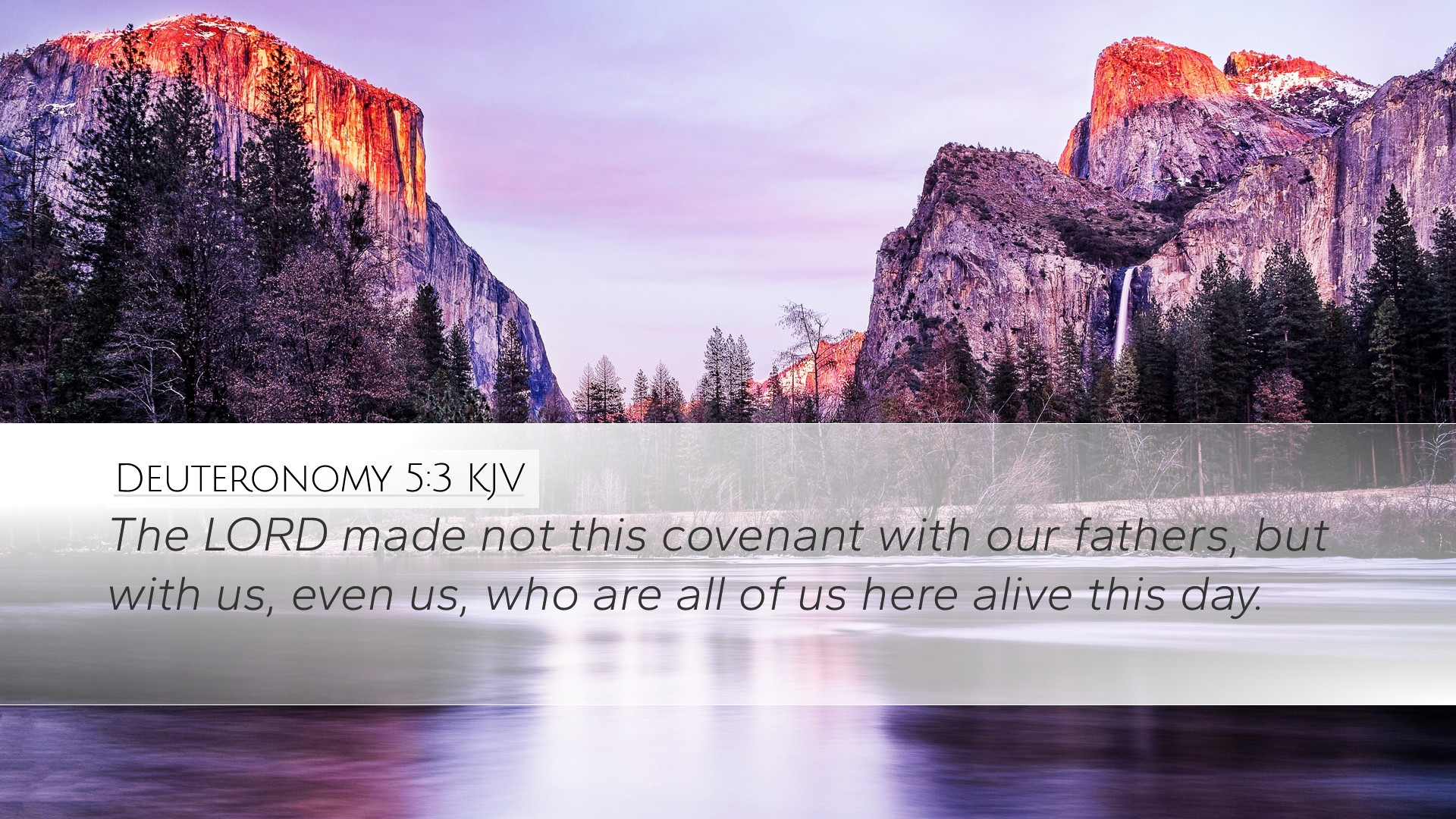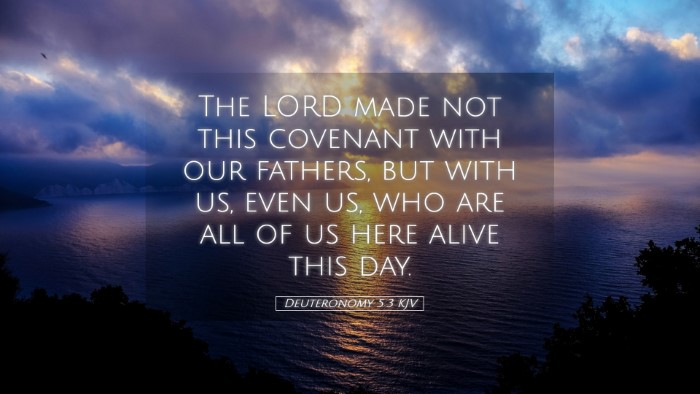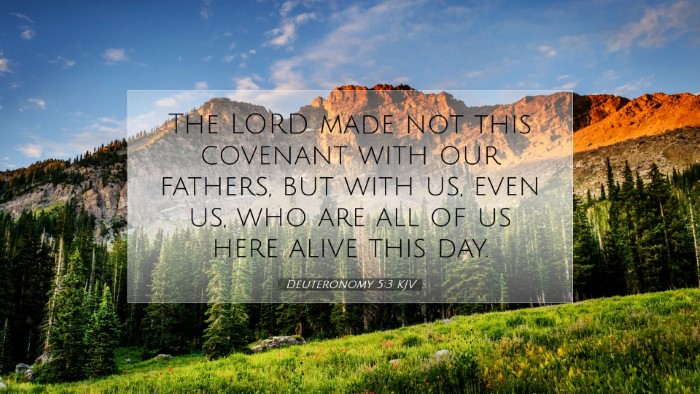Commentary on Deuteronomy 5:3
Verse Context: "The Lord made not this covenant with our fathers, but with us, even us, who are all of us here alive this day."
Understanding the Covenant
Deuteronomy, the fifth book of the Pentateuch, articulates the renewal of the covenant between God and Israel. In Deuteronomy 5:3, we find a pivotal statement about the nature of this covenant. The verse suggests that the covenant was not made with the ancestors but specifically with the current generation. This has profound implications for understanding the theology of covenant in the Scriptures.
Matthew Henry emphasizes that the covenant's renewal implies a personal responsibility and individual engagement. He posits that God’s promises and laws are not merely historical relics but live on in every generation. Each person is called to affirm this relationship personally with God, acknowledging the presence of the Lord in their lives and the ongoing obligation to live by His statutes.
Adam Clarke underscores that this covenant serves as a foundational promise of stewardship and fidelity. He notes that while the fathers received earlier revelations, it is critical for the present generation to recognize their own commitment to God's commandments. Clarke highlights that each generation must renew its understanding of God’s law as it applies to their specific context and challenges.
Albert Barnes elaborates on the sociological implications of this verse. He addresses the significance of community in covenantal relationships, suggesting that this reiteration signifies that the covenant is intended for the community as a whole, consisting of all individuals presently alive. Thus, there is an emphasis on collective responsibility, not just an individualistic approach to covenantal obedience.
Theological Reflections
- Generational Covenant: The emphasis on 'us' indicates a theological view that God's covenant is transmitted through generations, yet each generation must reaffirm their commitment.
- Living Covenant: By asserting that the covenant applies 'even us, who are all of us here alive this day', it bridges the historical with the present, illustrating God's ongoing relationship with His people.
- Responsibility and Obligation: This verse serves as a reminder that, just like the Israelites, contemporary believers are called to respond actively to God's directives and commandments.
Implications for Ministry and Scholarship
For pastors and theologians, Deuteronomy 5:3 provides rich material for preaching and teaching about the nature of God's covenant and the call for personal and communal faithfulness. The implications of this verse extend beyond the historical context into practical applications for today's believers.
Understanding that the covenant is reaffirmed in every generation gives insight into the importance of teaching and preaching on God's laws and statutes, ensuring that they are relevant to the congregational life. Further, it compels a reflective and responsive worship environment, encouraging congregants to engage actively with their faith.
As scholars, the exploration of this verse encourages critical examination of intergenerational faith transmission within the church. It raises questions about how effectively the current Church sustains the covenantal relationship with God and how well it communicates these truths to successive generations.
Practical Applications
- Encouraging Personal Engagement: Every believer should be encouraged to engage personally with God's covenant. This can be facilitated through study groups and personal devotions.
- Community Covenant: Ministries should focus on building community that embodies the principles of the covenant, fostering an environment of mutual support and accountability.
- Catechism for the Next Generation: Creating programs that teach the principles of the covenant to children and youth ensures that they understand their role within the covenant relationship.


